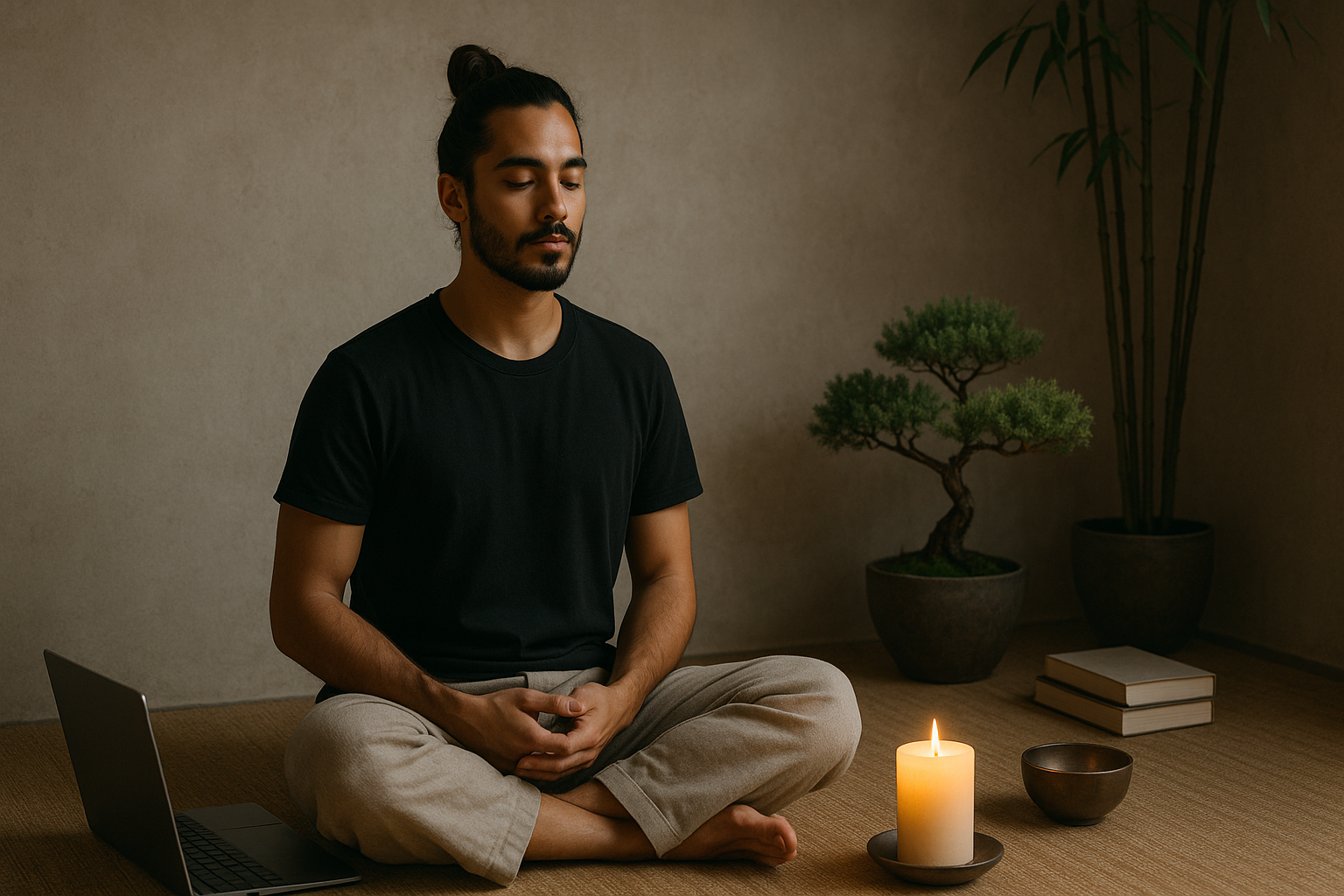“Flow” or the state of flow, is a term that in recent years has gained increasing relevance, especially among creatives and those who work in mentally demanding environments. The concept was popularized by the famous book Flow: The Psychology of Optimal Experience, written by Hungarian-American psychologist Mihaly Csikszentmihalyi. It’s something so close to the “Deep Work” theme.
But what makes Flow so special? And why is it so appreciated by creatives, musicians, painters, and more generally by anyone seeking to improve their productivity and well-being? The answer lies in the concept of “flow” itself: a mental state in which one is completely immersed and engaged in an activity, to the point of losing track of time and forgetting everything else. This state of intense concentration is not just a way to get more done—it is also a source of happiness and personal fulfillment.
Flow and Meditation
According to Csikszentmihalyi, achieving flow is an experience that can profoundly change our perception of work and everyday life. When we’re in flow, we feel alive, motivated, and focused on what we’re doing, undistracted by external elements. It’s a sensation many creatives know well: whether immersed in artistic creation, music, or a work project that excites us, we enter a sort of harmony that makes the experience unique.
A curious part of the book is when Csikszentmihalyi jokingly critiques meditation, suggesting that it’s more effective to find something you love to cultivate concentration than to force yourself to stay still like a fakir. A provocation that, in today’s mindfulness era, resonates even more strongly. Everyone has their own way of reaching the optimal state of focus, but what matters is the process of discovery and total engagement in a meaningful activity.
Apps like Calm are popular today precisely because of this collective need to clear the mind of anxiety and practice being present in the here and now—whether by listening to a guiding voice directing you to your breath, or to sounds created by musicians (even famous ones) specifically for the app.
Deep Work
In addition to Flow, another book that explores the theme of concentration is Deep Work by Cal Newport. The book opens with a story about Carl Jung, retreated to a tower near Zurich to isolate himself and focus on his theories. Newport emphasizes how, even today in the age of social media and constant notifications, the ability to isolate oneself and focus deeply is an essential resource for anyone who wants to produce quality work.
The lesson from Jung and Newport reminds us that concentration is necessary not only for writers and philosophers, but for anyone who wants to create real value in an increasingly fragmented world. Distraction is the enemy of productivity, and social media and apps designed to capture our attention often undermine our ability to enter a state of flow. In an age where every digital platform competes for a slice of our time, it’s up to us to consciously choose what truly deserves our attention.
Both Csikszentmihalyi and Newport propose a disciplined approach to focus that goes beyond simply turning off notifications. Newport’s digital minimalism invites us to reduce digital use to what is essential and useful, while Csikszentmihalyi encourages us to seek out activities that engage us so deeply we forget about distractions. This conscious use of technology is crucial for entering flow and experiencing deeper, more fulfilling moments.
Because ultimately, the real challenge is not just learning how to concentrate, but understanding where and how to direct that concentration. We must develop a new relationship with time and attention so that our activities don’t become mere daily tasks but instead moments of personal and professional growth.
Making Space
One of the most valuable lessons we can take from Flow and Deep Work is the importance of creating mental and physical space for concentration. Whether it’s a dedicated work corner at home, a walk in nature, or a meditation routine, we need to build a structure that encourages deep immersion in our activities.
In conclusion, the ability to enter flow is not a gift reserved for a lucky few, but a skill that anyone can cultivate. It requires practice, discipline, and the willingness to step away from noise and distraction in order to embrace focus as a source of happiness and fulfillment. Whether it’s creating art, solving a complex problem, or simply living more mindfully, the art of concentration helps us live better, work better, and ultimately, be happier.
Tips for reading:
1. Deep Work by Cal Newport
2. Flow by Mihaly Csikszentmihalyi



